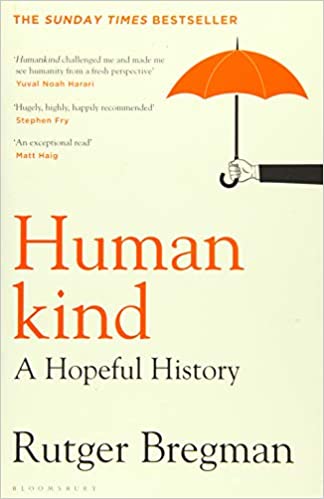I remember the first time I read William Golding’s “Lord of the Flies.” It was in English class at high school. The story’s about a group of British schoolboys who get marooned on a desert island.
With the veneer of civilization removed, they descend into savagery. The strong dominate the weak. Fear and superstition overcome reason. Violence replaces collaboration.
I glanced up from the book. My classmates looked aggressive and mean. The headlines were about the breakdown of law and order. I nodded in recognition. Golding was on the money about human nature.
Civilizing Human Nature
Later, at college, I read “Leviathan,” by Thomas Hobbes. (I was an English major, but Philosophy was cooler.) Hobbes’ main idea was that civilized society couldn’t hold together without a single, authoritative leader. For Hobbes, that meant a monarch.
I didn’t want to agree with that. It went against my liberal, democratic instincts. But Hobbes showed me the alternative.
Anarchy, barbarism: call it what you will. It’s not pretty. And it’s inevitable, if you leave people to do their own thing.
Misunderstanding Human Nature
Or is it? Rutger Bregman doesn’t think so. And he doesn’t think much of Thomas Hobbes, either. In his own book, “Humankind: A Hopeful History,” he sets out to correct some misunderstandings about human nature.

“Humankind” isn’t actually a history, though it uses plenty of historical examples. It’s a sustained argument for the basic decency and sociability of human beings.
And the problem isn’t that we’re not civilized enough. If anything, we’re too civilized.
The Curse of Civilization
For 95 percent of human history, we were hunter-gatherers. We lived nomadic lives, sharing goods in common.
People collaborated to survive. Groups appointed leaders because they had useful skills, not because they were dominant.
Then, just recently – say, 15,000 years ago – we settled down. We planted crops, built towns, and started to think of stuff as “ours.” And we began to defend it, banding together under strong leaders. Hey presto: civilization.
Hiding the Truth
But this, argues Bregman, ran contrary to true human nature, which is to socialize and share. Unfortunately, we’ve lost sight of this.
We’re programmed to think the worst by news media, so we subscribe to “veneer theory,” in which civilization is a thin skin protecting us from the worst excesses of our nature.
We also have our fears reinforced by science. Post-war social psychology designed experiments to prove that people were cruel and amoral. So, unsurprisingly, they found exactly that. But only by loading the dice.
A Kinder Reality?
We know that “Lord of the Flies” is fiction. But is it also wrong about people? What would have happened in reality? Bregman has some evidence.
Some Tongan schoolboys was marooned on a desert island in the 1960s. They didn’t fight. In fact, they made rules to avoid conflict. Nor did they make weapons. They made tools and grew food. Behaving decently and fairly to each other, they thrived on the island for more than a year.
This reinforces Bregman’s view of humanity. Fundamentally, we want to get along. It’s optimistic, for sure. And there’s no turning back the clock on civilization, for good or ill. But the book’s chock-full of uplifting examples of how we’re really not that bad. And that should be good news for all of us.
Download Our “Humankind” Book Insight
Mind Tools reviews the best new business and self-development books, alongside the tested classics, in our monthly Book Insight for the Mind Tools Club. So, if you’re a Club member or enterprise licensee, you can download or stream the full “Humankind” Book Insight in text or audio format.
Are you optimistic about the future? What’s the true nature of human nature? Join the discussion by adding your thoughts below!



